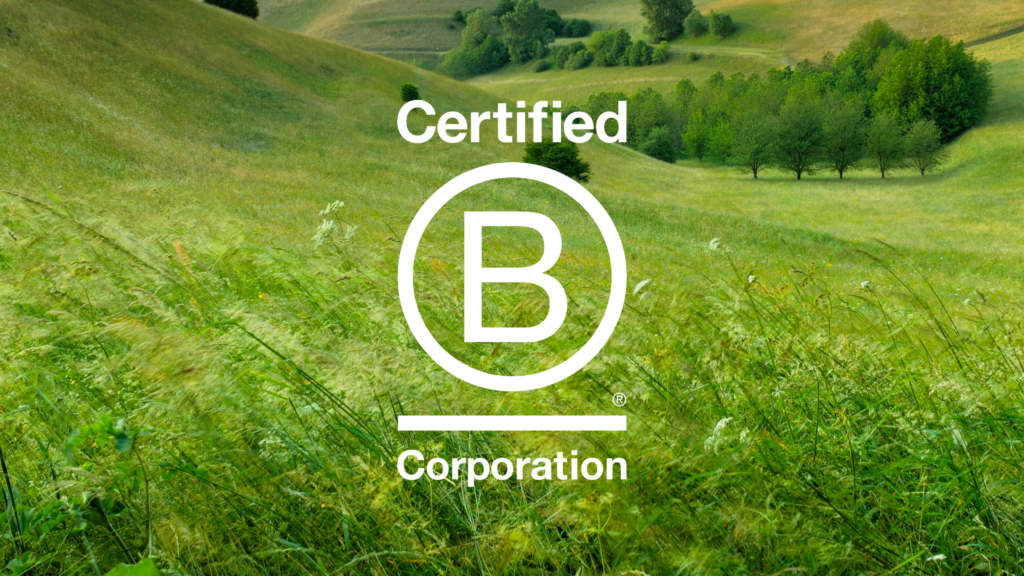Globally, institutional investors account for more than US $70 trillion in investable assets¹. That’s a lot of impact.
And the influence of institutions — especially nonprofits and foundations — in the impact investing market is clear: they have become the fastest-growing source of capital² for impact investment managers.
Wealth managers choose public impact equities for individuals seeking impact and at the same time minimizing liquidity risk. Here’s how this can work for institutional investors as well.
Why more institutional investors are choosing impact investing
According to the Global Impact Investing Network³ (GIIN), the global impact investing market reached $1.164 trillion last year — and among institutional investors, impact assets under management grew at a compound annual rate of 18%⁴ between 2017 and 2022.
Institutional investors — especially nonprofits and foundations — see impact investing as a critical way to align their organization’s investments with their values. As the GIIN notes⁵, the impact investment market “provides capital to address the world’s most pressing challenges, in sectors such as sustainable agriculture, renewable energy, conservation, microfinance, and affordable and accessible basic services including housing, healthcare, and education.” These strategies can target investments in emerging and developed markets, in both the private and public equity markets.
But historically, many institutional investors have sought impact investments in the private equity markets. Genus portfolio manager and head of foundations and nonprofits, Stephanie Tsui, says this has primarily been for reasons of visibility. “With private investments, it’s easy to see impact because they’re focused on specific projects — for example, a regional educational initiative that seeks to bring more women into the workforce,” says Tsui. “You can see the direct impact from some of these projects and know exactly what you’re getting.”
Getting greater liquidity

Private impact investments are often subject to a long lockup period, notes Tsui — meaning investors don’t know what kind of return potential they’ll have until they exit the investment. And because of the risky nature of some of the startups that are the basis of private investments, that return may not materialize at all.
Better measurement standards is one reason why public equity impact investments are becoming more popular. But so, too, is the realization that there is more liquidity with this type of investment.
Minimizing risk is the top-ranked reason institutions consider ESG factors when looking at public investments, according to the 2023 Canadian Responsible Investment Trends Report⁶ (followed by “fulfilling fiduciary duty” and “fulfilling mission, purpose or values”).
As Tsui explains, a “If a stock falls out of favour, or the impact is not as great as we thought, then we can get out of it and easily find a replacement.” That sort of liquidity is a key reason why institutions are increasingly choosing public equity investments.
The case for public equity institutional impact investments
Tsui says there is a strong case to be made for public equity investments — especially as impact investing in the public markets has become more transparent, and there are more rigorous impact measurement tools in place.
At Genus, we measure impact investments based on the percentage of revenues being generated from a public company’s products or services that contribute to global sustainable development goals (SDGs), defined by the UN’s 2030 Agenda for Sustainable Development. The SDGs cover everything from good health and well-being to affordable and clean energy. Genus carefully vets the companies and funds in its portfolios — ensuring that they address the SDGs while also delivering appropriate financial returns.

Each institutional investor also gets a portfolio Net Impact Score, which details both the positive and negative impacts of their public equity investments resulting in a single, overall score. The Net Impact Score provides a holistic measurement for each account — and ensures that the institution’s portfolio is aligned with their objectives and values. “With this kind of framework, with this measurement standard, it makes public impact equity more possible and feasible,” says Tsui.
Choosing the right investment partner
At present, Genus is one of only a handful of investment firms in Canada offering public equity impact investments for institutional investors. Tsui thinks that part of the reason is the challenge of putting rigorous impact measurement standards, like Net Impact Score, in place. She also thinks it’s critical that a financial partner who wants to help institutions with impact have a responsible investment policy — something that ensures alignment between client and firm.
One way investment firms can show their commitment to responsible investing practices is by getting certified by independent third-party groups, such as B Corp — which measures a company’s entire environmental and social impact⁷. Genus has been a B Corp since 2017, and in 2022 Genus was named B Corp ‘Best for the World’⁸ — a ranking that puts us among the top 5% of similar-sized North American B Corps.

For institutions looking for a wide range of impact investing options — from public to private equity, across all risk profiles — these sorts of independent measures ensure that an institution is connecting with a trustworthy partner, one that walks the talk of socially responsible investing.
Want to explore whether impact investing is right for your institution? Contact a Genus advisor today.
References
- Portfolio management for institutional investors (no date) CFA Institute. Available at: https://www.cfainstitute.org/en/membership/professional-development/refresher-readings/portfolio-management-institutional-investors#:~:text=On%20a%20global%20basis,%20institutional,significant%20influence%20over%20capital%20markets (Accessed: 22 December 2023).
- Institutional investors fastest-growing source of capital for Impact Investment Managers, New Giin Survey reveals (2023) The Social Enterprise Magazine – Pioneers Post. Available at: https://www.pioneerspost.com/news-views/20230630/institutional-investors-fastest-growing-source-of-capital-impact-investment (Accessed: 06 December 2023).
- The Impact Investing Market (2023) Impact Investing Institute. Available at: https://www.impactinvest.org.uk/learning-hub/the-impact-investing-market/#:~:text=Global%20Impact%20Investing%20Network%20(GIIN)&text=The%20GIIN%27s%202022%20market%20sizing,considerable%20growth%20in%20recent%20years. (Accessed: 06 December 2023).
- The Impact Investing Market (2023) Impact Investing Institute. Available at: https://www.impactinvest.org.uk/learning-hub/the-impact-investing-market/#:~:text=Global%20Impact%20Investing%20Network%20(GIIN)&text=The%20GIIN%27s%202022%20market%20sizing,considerable%20growth%20in%20recent%20years. (Accessed: 06 December 2023).
- What you need to know about impact investing (no date) The GIIN. Available at: https://thegiin.org/impact-investing/need-to-know/#what-is-impact-investing (Accessed: 06 December 2023).
- 2023 Canadian RI trends report (2023) Responsible Investment Association. Available at: https://www.riacanada.ca/research/2023-canadian-ri-trends-report/ (Accessed: 06 December 2023).
- B Corp certification demonstrates a company’s entire social and environmental impact. (no date) B Corp Certification demonstrates a company’s entire social and environmental impact. Available at: https://www.bcorporation.net/en-us/certification/ (Accessed: 06 December 2023).
- 2022 best for the world customers: B Corps add value to customers’ lives (2022) B Lab U.S. & Canada. Available at: https://usca.bcorporation.net/zbtcz08z22zbftwz2022-best-for-the-world-customers-b-corps-add-value-to-customers-lives/ (Accessed: 06 December 2023).











